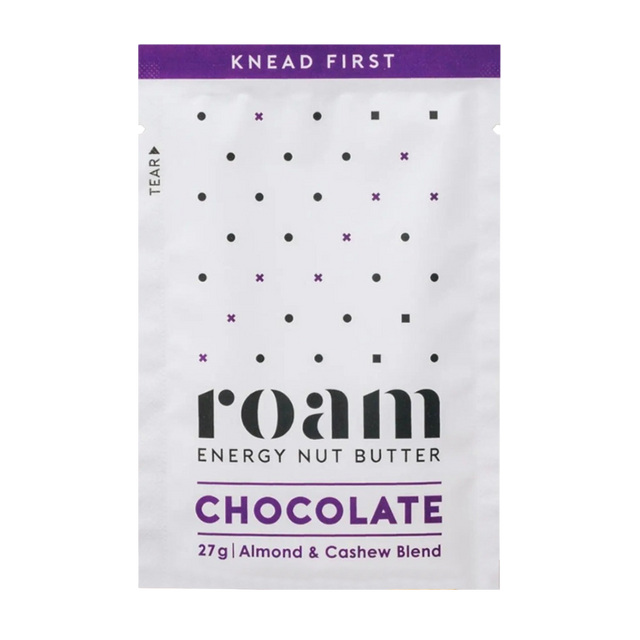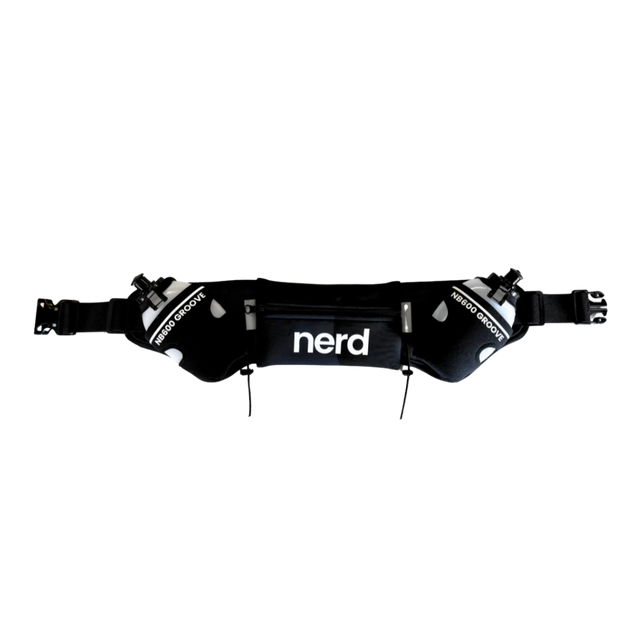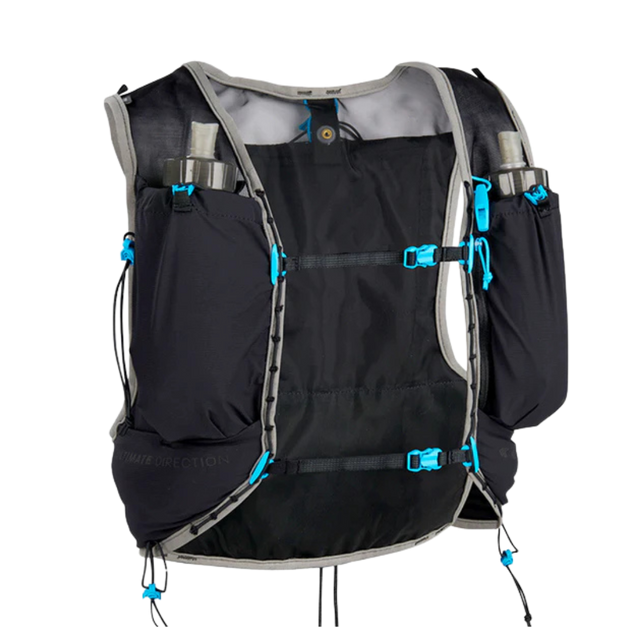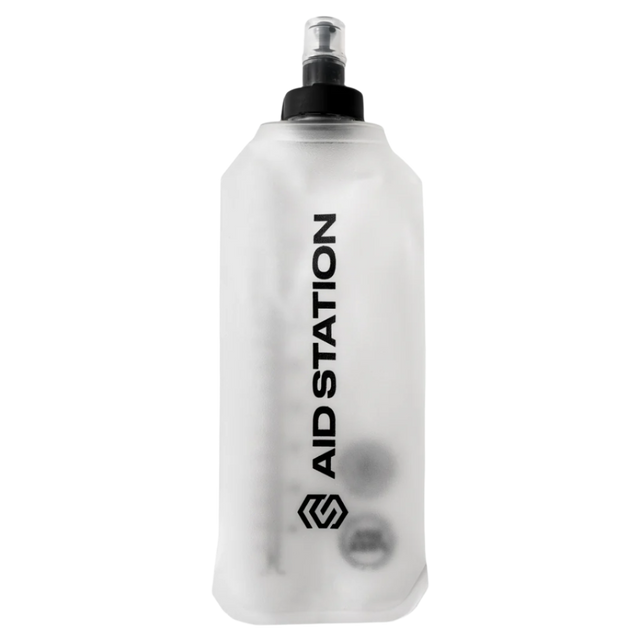From Half to Full Marathon: A Beginner’s Guide to Levelling Up Your Distance
Half marathon down, full up next? Don’t make these fuelling mistakes. When your runs push past 90 minutes, energy demands skyrocket and poor nutrition can leave you drained, cramping, or stuck on the sidelines with gut issues you didn’t see coming. Marathon success hinges just as much on your fuelling strategy as your training plan. Your body can go the distance, let’s give it the fuel for a fast, fierce finish.
Daily Nutrition
Macronutrients to Aim for on a Daily Bases
-
Carbs→ 5-10 g/kg body weight/day [If you're training 30 minutes a day, aim for the lower end of carbs. If you're training for up to 3 hours a day, go for the higher end](1)
-
Protein→ 1.6-2g/kg.day (2)
-
Fat→ 20–35% of total daily energy intake (1)
-
Calories→ 40-60 cal/kg of fat free mass [FFM] per day (3,4)
Pre-Training Nutrition for Racing or Long Training Runs
-
1 hour before→ Some simple carbs with protein e.g. ½ cup of yoghurt with 2 Tbsp of maple syrup
-
2-3 hours before→ Have a greater quantity of complex carbs with some protein e.g. 1-1.5 cups of oats + ½-1 banana + 1-2 cups of milk + 1-2 Tbsp of nuts or seeds
Post-Training Nutrition for Racing or Long Training Runs
-
After long runs or intense sessions consume a meal or a snack that contains 20-40g of high-quality protein as close to finishing training as possible, preferable within 30-60 minutes (5,6).
Example→ Males
120g cooked chicken breast + 1 cup cooked jasmine rice + 1/2 cup roasted sweet potato+ 1/2 cup edamame + 1/2 avocado +1 tbsp sweet chili sauce
[ 740 Cal. 37g Pro. 14g Fat. 115g Carbs]
Example→ Females
Smoothie with 1 scoop of Switch Nutrition- Protein Switch + 1 sachet Roam Nut Butter + 1 medium banana + 40g of rolled oats + 100g frozen berries + 200ml of unsweetened almond milk
[ 645 Cal. 38g Pro. 22g Fat. 76g Carbs]
Read more about post exercise nutrition here.
Everyday Hydration
-
Aim for 30-35 mL/kg/day of water with an everyday hydration electrolyte mix such as Hyro or Dr. Hydrate.
Fuelling During Long Runs and on Race Day
-
Carbs per hour → Aim to consume 60-120g of carbohydrates per hour during a marathon or run over 2 hours (1).
-
Pro Tip→ Your pre race nutrition 20 mins before race starts contributes to your first hour of carbohydrate intake.
To help choose the right carb source for you read ‘Why Every Marathon Runner Needs a Nutrition Plan’, ‘What Gel Should I Choose?’ and ‘ High Carb or Low Carb for Endurance Performance?’
-
Hydration→ Consume electrolytes with your water during long training runs and on race day. My recommendation is Skratch Labs Sport Hydration Drink Mix Bag.
-
Pro Tip→ Use a run belt, vest or hand held flask if you are carrying your own hydration.
Supplements to Consider
-
Pillar Performance Triple Magnesium - For muscle relaxation and cramp prevention (7,8).
-
Iron- For oxygen carrying capacity. Get a blood test and check with your GP before supplementing (9,10).
-
Vitamin D- For strong bones, reducing inflammation, and supporting immune function. Get a blood test and check with your GP before supplementing (11).
-
Creatine Monohydrate- For enhanced muscle energy, improving recovery, and preserving lean muscle mass, which can help reduce injury risk and support endurance performance. For more information on creatine read our article ‘What is creatine?’ (12).
Ash Miller
Dietitian and Nutritionist (Masters)
Bachelor of Physical and Health Education
Instagram: @ashthomo_nutrition
Disclaimer:
The content in this blog is for general information only and is not a substitute for professional medical advice, diagnosis, or treatment. Always speak with your doctor or allied health team before changing your diet, exercise, or taking supplements, especially if you have a health condition or take medication. Please use this information as a guide only. Aid Station doesn't take responsibility for individual outcomes.
References
-
Kerksick, C.M., Arent, S., Schoenfeld, B.J. et al. International society of sports nutrition position stand: nutrient timing. J Int Soc Sports Nutr 14, 33 (2017). https://doi.org/10.1186/s12970-017-0189-4
-
Witard, O.C., Hearris, M. & Morgan, P.T. Protein Nutrition for Endurance Athletes: A Metabolic Focus on Promoting Recovery and Training Adaptation. Sports Med 55, 1361–1376 (2025). https://doi.org/10.1007/s40279-025-02203-8
-
Loucks AB. Energy balance and energy availability. Nestle Nutr Inst Workshop Ser. 2014;78:7-18. doi:10.1159/000358331. PMID: 24715561.
-
Koehler K, Hoerner NR, Gibbs JC, Zinner C, Braun H, De Souza MJ, Schaenzer W. Low energy availability in exercising men is associated with reduced leptin and insulin, but not with changes in other metabolic hormones. J Sports Sci. 2016;34(20):1921-1929. doi:10.1080/02640414.2016.1142109. PMID: 26852783.
-
Phillips, S. M., & Van Loon, L. J. C. (2011). Dietary protein for athletes: from requirements to optimum adaptation. Journal of Sports Sciences, 29(sup1), S29–S38.https://doi.org/10.1080/02640414.2011.619204
-
Ivy, J. L., et al. (2002). Effect of carbohydrate-protein supplementation on endurance performance during exercise of varying intensity. International Journal of Sports Nutrition and Exercise Metabolism, 12(4), 424–439.
https://doi.org/10.1123/ijsnem.12.4.424
-
Coudyzer M, Bastin J, Francaux M. The role of magnesium in skeletal muscle health: a scoping review. Int J Mol Sci. 2024;25(20):11220. doi: 10.3390/ijms252011220. PMID: 37894735.
-
Gualano B, Saunders B, Mielke GI, et al. Magnesium supplementation and exercise recovery: a systematic review. J Transl Med. 2024;22(1):234. doi: 10.1186/s12967-024-05434-x. PMID: 38314457.
-
Keller K, et al.Iron deficiency in athletes: Prevalence and impact on VO₂ peak.Nutrition. 2024;117:112165. doi: 10.1016/j.nut.2024.112165. PMID: 39002373.
-
Dugan C, Peeling P, Buissink P, et al. Effect of intravenous iron therapy on exercise performance, fatigue scores, and mood states in iron-deficient recreationally active females of reproductive age: a double-blind, randomized control trial (IRONWOMAN Trial). Br J Sports Med. 2025; Published online March 2, 2025. doi: 10.1136/bjsports-2024-108240
-
Holick MF. Vitamin D deficiency. N Engl J Med. 2007 Jul 19;357(3):266-81. doi: 10.1056/NEJMra070553. PMID: 17634462.
-
Butts J, Jacobs B, Silvis M. Creatine Use in Sports. Sports Health. 2018 Jan/Feb;10(1):31-34. doi: 10.1177/1941738117737248. Epub 2017 Oct 23. PMID: 29059531; PMCID: PMC5753968.


















